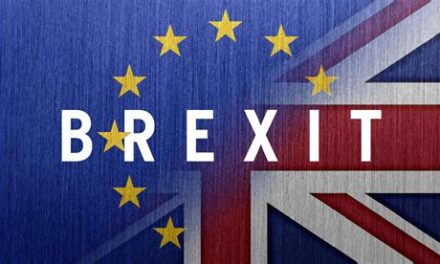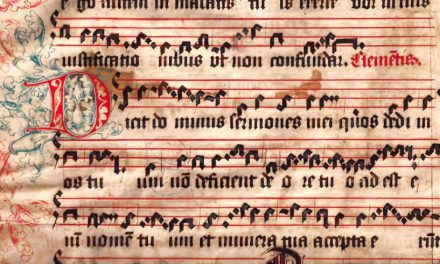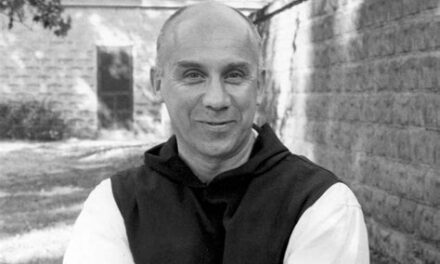Jay Cost, an author whose book A Republic No More: Big Government and the Rise of American Political Corruption I reviewed very favorably on this site, wrote a few days ago in National Review Online about the lamentable hatred that estranged James Madison and Alexander Hamilton from one another, still virulent at Hamilton’s death at the hands of Aaron Burr in 1804.
It’s an interesting article, to some extent a partial abstract of his new book (The Price of Greatness: Alexander Hamilton, James Madison, and the Creation of American Oligarchy) on how these two American giants, even in opposition, helped forge the peculiar politics in the young republic.
The real point of Cost’s essay, however, is moral, and not from a strictly historical perspective. For all the greatness of the founding generation, he says, “[s]ometimes, as in the case of Madison and Hamilton, they could be petty, mean-spirited, and selfish.” The intense hatred, which placed two-formerly like-minded men at each other’s throat, is an unfortunate feature of American politics today.
One needn’t look very hard to see how accurate his observation is. ‘Too often in our politics, we are willing to believe that our political opponents are not just wrong but bad (or evil), or at best fools. They want to destroy the America we know and love, we think, and replace it with some terrible alternative.’
Both Republicans and Democrats, liberals and conservatives, have these sorts of views about each other. If you spend any time on Twitter, you know exactly what I mean.”
Wouldn’t it be for the greater good, Cost reflects if we spent out energies seeking issues on about which we agree instead of focusing single-mindedly on those that separate us?
Many must find the idea attractive. In our turbulent political state, Christians of all people should welcome any proposal for the discovery of common ground; blessed are the peacemakers.
Acknowledging that, I have to wonder whether the chance for reconciliation isn’t long past, which is why I don’t find the example of James Madison and Alexander Hamilton as helpful as it might appear.
Madison and Hamilton were men of a revolutionary generation that, in spite of sometimes-pronounced practical differences, shared certain common beliefs and ideas. One was a belief in God. Undeniably, many of them drifted from Episcopalian, Congregationalist, and Presbyterian roots into deism, but except Thomas Paine, no major figure of the revolutionary generation professed atheism.
This belief was summed up by Madison: “Belief in a God All Powerful wise and good is so essential to the moral order of the World and the happiness of man, that arguments which enforce it cannot be drawn from too many sources.” It’s fair to say this belief affected their politics, not in the traditional European demand for a state-sponsored church or a religious requirement for the holding of office in the national government, but in their understanding of why politics existed. God is a singular Being; man is created and, base the idea on whatever text you like, fallen.
Madison stated it famously in Federalist 51: “If men were angels, no government would be necessary. If angels were to govern men, neither external nor internal controls on government would be necessary. In framing a government which is to be administered by men over men, the great difficulty lies in this: you must first enable the government to control the governed, and in the next place oblige it to control itself.”
Even though these quotations come from Madison, there’s little doubt that Hamilton shared the basic understanding. In other words, these were two men whose views of the nature of man and politics were very similar.
In the political wars of the twenty-first century, do the opposing parties share enough in common regarding the purpose of government and the nature of man to supply common ground in the arena of practical politics?
The answer may not be simple, but it’s worth underscoring a few facts. The political philosophy of the founding generation is one still held by most American conservatives though, indeed, not all Republicans. Do liberals or, as they seem to prefer now, progressives subscribe to that philosophy?
In the eighties on an episode of William F. Buckley’s ‘Firing Line’ the then-editor of The New Republic (TNR) Michael Kinsley, in the course of the discussion, mentioned James Madison. Someone (it may have been Buckley) asked Kinsley whether he would consider Madison, an extremist. Kinsley’s answer was eye-opening only in its naked honesty. He replied that if Madison held the same views today that he held when he lived, yes, Madison would be an extremist.
Kinsley’s view is no different from progressives today—or yesterday. Richard Ely, Woodrow Wilson, Herbert Croly (another TNR man), and Franklin Roosevelt thought the same thing, just as today—to the extent that they’re capable of scaling the heights of political philosophy—do Barrack Obama, Elizabeth Warren, and Chuck Schumer.
If you don’t believe me, read Charles Kesler’s outstanding I Am the Change: Barrack Obama and the Crisis of Liberalism.
To the American liberal, government exists to create the conditions where man will attain the perfectibility he had in a mythical Rousseauian state of nature. Your average liberal may go to church, but his view of God is very, very small and estimation of what government can do, without limit.
Give a Washington bureaucrat enough money (of which there’s never enough), and there’s no limit to the good he can do, the amount he can spend, and the formerly unknown “rights” he will discover. His world is one of happy-face anarchy and centralization rolled into one, Rousseau and Marx in a tight embrace, a state where at least certain men (the state experts) are angels dispensing goodwill and state largess to select groups.
Do I overstate the case? Just turn on C-Span for a few days or listen to Bill DeBlasio spout off about anything.
On balance, I understand Jay Cost’s desire to see reasonable men in public affairs get together and arrive, by consensus, at solutions to the few pressing problems they can fix. But my sense of what man is—and I share the view of the Founders on that one—tells me that when you give a class of men money and power because they aren’t angels, they just might become devils and demand the store. The sub-title to Cost’s book on corruption said it all: “Big Government and the Rise of Political Corruption.” One must harbor a healthy suspicion of power to link those things together. Our Founders did, conservatives do, but liberals don’t.
Far from the pettiness that separated Madison and Hamilton, the divide that yawns wider and wider today is of opposing philosophies about God and man, which since the election of Barrack Obama has become all too pronounced. Jay Cost may see some common ground there, but I see an abyss deep and wide enough to make a political Evel Knievel cringe.














